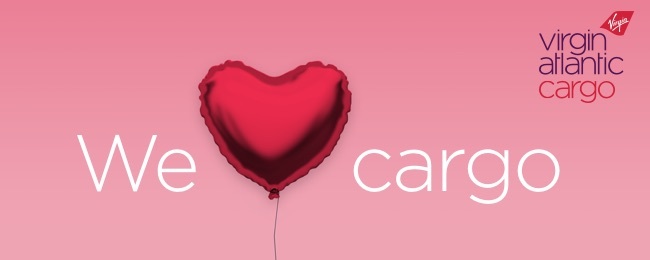|
Air freight markets have rapidly deflated in the early days of January
with a hoped-for pre-Chinese New Year bump failing to materialize, at
least so far.
According to the TAC Index, average gateway
prices on routes from Shanghai to Europe fell from $3.17 per kg on November
5 to $2.98 per kg on January 7. The decline on the Transpacific Hong Kong-North
America lane was far more severe, however, slumping from a year-high of
$5.69 on November 19 to just $3.79 on January 7.
Spring Celebration
In China
The advent of CNY Factory shutdowns for
Chinese New Year scheduled from early February as Lunar New Year (Year
of the Pig) celebrations commence February 5 are already causing a slowdown
in exports out of Asia.
According to Flexport, there is currently
ample cargo space available on flights out of China, Hong Kong and Vietnam,
with market demand “significantly decreased” out of all three
key origins in recent weeks, and a decline in spot rates ex-Vietnam.
“The last possible Cargo Ready Date
to still move goods out of China before Chinese New Year is February 2nd,”
said the digital forwarder.
On the money
talks between USA and China are reportedly “going
well,” as both sides attempt to reach consensus on how to handle
issues of trade, intellectual property and market access for U.S.
companies in China.
Meetings of U.S. and Chinese delegations at the
G20 event in Buenos Aires in early December produced a delay until
March 1, in commodities that were scheduled to jump from 10% additional
duties to 25%.
The upshot is that China has begun purchasing American
soybeans again and maybe G20 helped burnish up globalization’s
waning reputation a bit.
Stay tuned . . . |
Buchman Disappointed
 Eytan
Buchman, VP of Marketing at Freightos, told FlyingTypers that
the early January slowdown follows a disappointing 2018 peak season. Eytan
Buchman, VP of Marketing at Freightos, told FlyingTypers that
the early January slowdown follows a disappointing 2018 peak season.
“In stark contrast to 2017, when air
freight hit capacity, and peak pricing were unusually high, the 2018 peak
season was far more understated,” he said. “Airlines increased
capacity, but demand did not increase as much as anticipated.”
Buchman said that in early November, only
the China-U.S. lane showed any sign of peak pricing, with the normal pre-Thanksgiving
rush boosted by trade tariff advance shipping.
“As peak season continued, China-U.S.
prices reached their highest level on November 26, subsequently dropping
55%,” he said.
“China-Europe prices increased 30%
and have now returned to pre-peak levels.
“There was no peak pricing on the
Europe-U.S. lane. The current price is just 1% off peak. In fact, carriers
even continued offering promotions on some lanes right through December.”
Buchman’s peak season analysis was
reflected in newly-released volume figures for November, the latest month
for which after-the-fact numbers are available.
IATA Has
Some Ideas
The International Air Transport Association
(IATA) said demand, measured in freight ton kilometers (FTKs), was flat
(0%) in November 2018 when compared to a year earlier. “This was
the slowest rate of growth recorded since March 2016, following 31 consecutive
months of year-on-year increases,” it reported.
 IATA
attributed the stagnation to signs of “weakness in global economic
activity,” declining consumer confidence and “a contraction
in export order books in all major exporting nations,” with the
exception of the U.S. IATA
attributed the stagnation to signs of “weakness in global economic
activity,” declining consumer confidence and “a contraction
in export order books in all major exporting nations,” with the
exception of the U.S.
“Normally the fourth quarter is a
peak season for air cargo,” said Alexandre de Juniac, IATA’s
Director General and CEO. “So essentially flat growth in November
is a big disappointment.”
WorldACD found that not only did November
2018 disappoint compared to a year before, but it did not even retain
its traditional position as the busiest month of the year. “Volume
in November 2018 was not only 1.4% lower year-on-year, it was also lower
than the month before: with a peak that was less pronounced than in previous
years, November saw a drop vs October of 2%,” said the analyst.
AAPA Sees
Edge
 The
Association of Asia Pacific Airlines (AAPA) said the region’s airlines
saw international air cargo demand measured in FTKs edge 0.1% higher year-on-year
in November, but this increase was swamped by a 5.9% jump in offered capacity,
leading to a 3.8 percentage point decline in the average international
freight load factor to 65.2%. The
Association of Asia Pacific Airlines (AAPA) said the region’s airlines
saw international air cargo demand measured in FTKs edge 0.1% higher year-on-year
in November, but this increase was swamped by a 5.9% jump in offered capacity,
leading to a 3.8 percentage point decline in the average international
freight load factor to 65.2%.
"The moderation in export activity
with slowing business orders, contributed to the slowdown in air cargo
growth for the month, although this was mitigated by higher volumes of
e-commerce shipments going into the year-end festive season,” said
Andrew Herdman, AAPA Director General.
“Overall, the region's airlines recorded
a cumulative 4.3% increase in air cargo demand during the first eleven
months of the year, a reasonably solid growth rate following the exceptionally
strong 9.6% annual increase recorded in 2017."
Looking ahead, Herdman said the overall
prospects for Asian carriers remained relatively positive. “Continued
moderate growth in the global economy and lowered oil prices should support
further expansion in air travel demand and air cargo markets in the coming
year, although the recent deterioration in trade sentiment and uncertainties
over the potential impact on consumer confidence levels present some downside
risks,” he said.
Focus Versus
Confrontation
De Juniac was also upbeat, but predicted
air cargo stakeholders would face a number of headwinds as 2019 progressed.
“While our outlook is for 3.7% demand growth in 2019, downside risks
are mounting,” he added. “Trade tensions are cause for great
concern. “We need governments to focus on enabling growth through
trade, not barricading their borders through punitive tariffs.”
WorldACD concluded: “The mixed picture
we have seen in 2018 may well carry over into the new year, which seems
to announce itself with much more uncertainty than a year ago, when the
air cargo world looked quite stable.”
SkyKing
|







 Vol.
18 No. 1
Vol.
18 No. 1